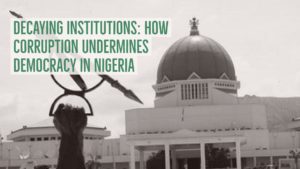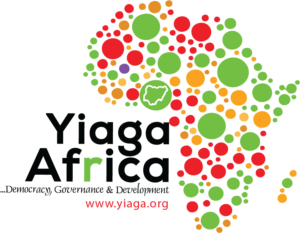Will Nigeria’s two-party system tremble? AFP asks (above). Africa’s most populous nation has known its share of bruising campaigns, but never since the 1999 return to democracy has there been a run-off in the presidential election. Now, in a nation where the average age is 18, could voters turn away from big tent parties and candidates who are both in their seventies?
Ahead of Crucial Election, Security Crises and Kidnappings Plague Nigeria, runs the headline in The New York Times.
 “In the past, Boko Haram was Nigeria’s main security problem,” said Nnamdi Obasi, a researcher with the International Crisis Group, based in Abuja. “Now we have three or four of those major crises.”
“In the past, Boko Haram was Nigeria’s main security problem,” said Nnamdi Obasi, a researcher with the International Crisis Group, based in Abuja. “Now we have three or four of those major crises.”
The ‘Obidient movement’ has awakened the consciousness of a generation of young Nigerians who see hope in Peter Obi’s candidacy for the Nigerian presidency. The movement will outlive the election regardless of the result, according to analysts Augustine B. Aboh and Obasesam Okoi.
Ahead of Saturday’s election, Nigerians are dissatisfied with the traditional ruling parties due to growing concerns about corruption, insecurity, and poor economic performance. Political leaders from both parties have been implicated in high corruption scandals while the country’s corruption ranking has worsened, they write for the LSE:
The 2023 presidential election will help shape the path to social reconstruction or create the conditions for a descent into chaos. As Damon Wilson, president of the National Endowment for Democracy (NED), noted, transformation in Nigeria “matters and can have a real impact on the development of democracy in West Africa, across Africa, and around the world”.
 During a recent trip to Nigeria, Wilson witnessed how international support is enabling civic actors like Yiaga Africa to coordinate a massive national effort to monitor elections, he writes for TIME:
During a recent trip to Nigeria, Wilson witnessed how international support is enabling civic actors like Yiaga Africa to coordinate a massive national effort to monitor elections, he writes for TIME:
The Kimpact Development Initiative is doing groundbreaking work using data to help mitigate election-related violence. The Socio-Economic Rights and Accountability Project is helping defend journalists and press freedoms. Meanwhile, Anvarie Tech is tapping Big Brother television stars and popular musicians to ensure greater awareness of the electoral process and civic rights, while Joy Inc.’s documentaries spark public debate on police reforms.
FPRI analyst Charles Ray considers whether Nigeria’s 2023 elections will amount to a youthful revolution.
President Muhammadu Buhari has been “walking the talk” by ensuring total support for the Independent National Electoral Commission (INEC), reports suggest. He is confident of the commission’s readiness for the election he told a gathering co-hosted by the United State Institute of Peace (USIP), the International Republican Institute, the National Endowment for Democracy, and the International Foundation for Electoral Systems.
 The Obidient movement has reawakened national consciousness to the failings of governance, while simultaneously reviving the hopes of Nigerians, particularly the youth, in the possibility of political change, argue Aboh and Okoi:
The Obidient movement has reawakened national consciousness to the failings of governance, while simultaneously reviving the hopes of Nigerians, particularly the youth, in the possibility of political change, argue Aboh and Okoi:
According to Ebenezer Obadare at the Council for Foreign Relations: “Whether he wins the presidency or not, Peter Obi has already changed the course of Nigerian politics for good”…. It is not surprising that the youth who are primarily driven by their admiration and fealty to Obi are also united by their disgust with the country’s failing leadership and the hope that their votes can contribute to the process of birthing a new Nigeria.
The @NDI @IRIglobal Election Observation Mission in Nigeria issued the following statement #NigeriaIEOM #NigeriaDecides2023 pic.twitter.com/3NVwQqMfjY
— IRI (@IRIglobal) February 23, 2023
During a recent trip to #Nigeria, I witnessed how civic actors like @YIAGA @KDI_ng @SERAPNigeria @AnvarieTech & #JoyInc are empowering voters & defending the electoral process, @NEDemocracy‘s @DamonMacWilson writes for @TIME. https://t.co/oeRAi5qkyO
— Democracy Digest (@demdigest) February 23, 2023







